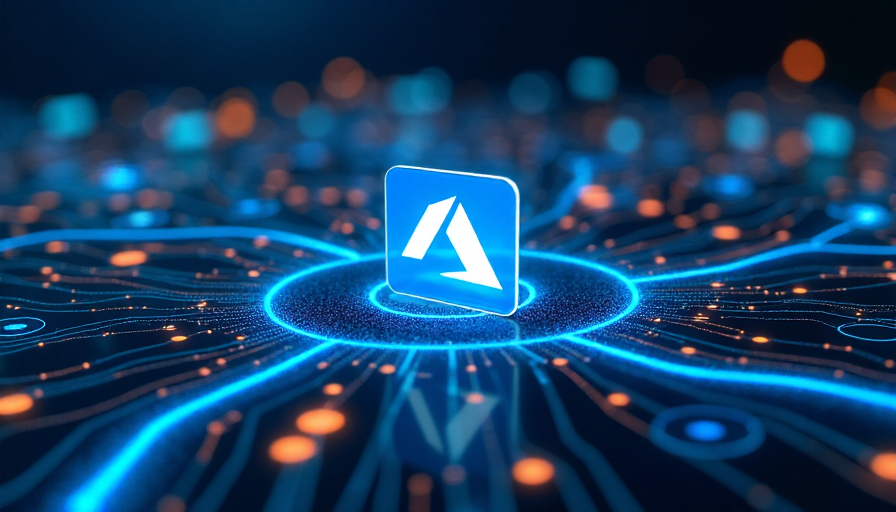
Microsoft and NVIDIA Revolutionize AI with Azure Enhancements
Microsoft and NVIDIA are joining forces once again to push the boundaries of artificial intelligence. Their ongoing partnership continues to deliver industry-leading cloud supercomputing, powering solutions like ChatGPT within the Microsoft Azure OpenAI Service and transforming productivity with Microsoft Copilot.
A New Era of Collaboration
In a recent announcement, both tech giants unveiled a series of innovations that further solidify their alliance. The latest developments include:
- Integration of NVIDIA Blackwell with Azure AI: Leveraging the powerful Blackwell platform to boost Azure AI services.
- Introduction of NVIDIA NIM Microservices: Now part of Azure AI Foundry, these optimized containers support over two dozen foundation models.
- Empowering Developers and Enterprises: Innovative offerings designed to accelerate the deployment of generative AI applications across sectors, from healthcare to manufacturing.
Azure AI Foundry Gets a Boost
With agentic AI gaining momentum, Azure AI Foundry has been enriched with NVIDIA NIM Microservices. This advancement provides rapid deployment capabilities for innovative AI applications and speeds up inferencing workloads for models available on Azure. For instance, Epic—a trailblazer in electronic health records—anticipates that this integration will significantly enhance patient care and streamline operations.
"The launch of NVIDIA NIM microservices in Azure AI Foundry offers a secure and efficient way to deploy open-source generative AI models that improve patient care and drive medical innovation," stated Drew McCombs, VP of Cloud and Analytics at Epic.
Optimized Inference Performance
Beyond the Foundry, the collaboration is also focusing on optimizing inference performance. With enhancements including TensorRT-LLM optimizations for Meta Llama models, developers can now integrate these refined models directly from the Azure catalog without extra steps.
Arun Venkatachar, VP Engineering at Synopsys Central Engineering, noted, "The performance improvements in both throughput and latency have made Azure AI Foundry our go-to platform for scaling AI applications efficiently."
Elevating Azure's AI Infrastructure
Microsoft is also proud to announce the launch of the Azure ND GB200 V6 virtual machine series, powered by NVIDIA GB200 NVL72 and Quantum InfiniBand networking. This next-generation infrastructure is aimed at tackling sophisticated AI tasks such as planning and reasoning. According to NVIDIA's Ian Buck, "The integration of NVIDIA Blackwell and our NVL72 technology with Azure sets a new standard for handling complex AI workloads."
Looking Ahead: GPU-Based VMs
The partnership is set to redefine AI training with the upcoming launch of NVIDIA Blackwell Ultra GPU-based VMs in 2025. These machines promise to enhance performance for agentic and generative AI workloads while enabling Azure to scale extensive GPU clusters for advanced training processes.
Industry Impact and Success Stories
The ripple effects of these innovations are already being seen across industries:
- Healthcare: Epic is harnessing these new technologies to pioneer open-source generative AI for improved patient outcomes.
- Networking: Companies like Meter are utilizing Azure’s scalable infrastructure to drive forward large foundation model training intended to automate networking processes.
- Media and Design: Black Forest Labs is broadening its partnership with Microsoft Azure to develop cutting-edge deep learning models, ensuring faster and larger-scale delivery of visual AI capabilities.
Robin Rombach, CEO of Black Forest Labs, highlighted the collaboration, saying, "Our joint efforts with Azure allow us to deliver state-of-the-art visual AI models that redefine media production and design."
Expanding Horizons Across Diverse Sectors
In addition to these advances, Microsoft and NVIDIA have introduced preconfigured NVIDIA Omniverse and Isaac Sim virtual desktop workstations to the Azure marketplace. These solutions offer developers robust tools to craft digital twins and simulate robotics, fostering the digital transformation of manufacturing and other industries.
Innovative startups are also leveraging these capabilities to advance in areas such as confidential computing, software engineering insights, and biodiversity discovery.
The dynamic partnership between Microsoft and NVIDIA is clearly reshaping the future of AI by enhancing infrastructure, promoting faster deployment, and enabling more efficient scaling. As these technological advancements build momentum, industries across the globe are set to benefit from faster innovation and smarter solutions.
Stay tuned as Microsoft and NVIDIA continue to unlock the potential of AI in new and exciting ways, driving future breakthroughs across diverse sectors.
Note: This publication was rewritten using AI. The content was based on the original source linked above.